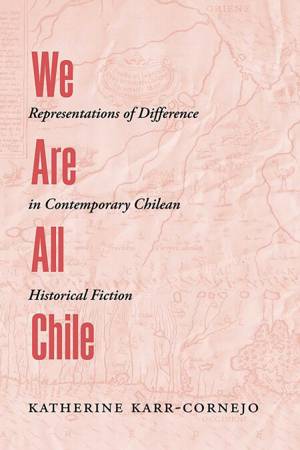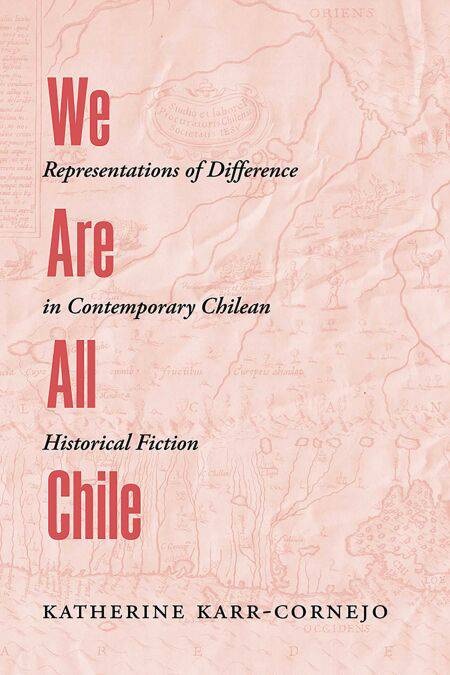
- Retrait gratuit dans votre magasin Club
- 7.000.000 titres dans notre catalogue
- Payer en toute sécurité
- Toujours un magasin près de chez vous
- Retrait gratuit dans votre magasin Club
- 7.000.0000 titres dans notre catalogue
- Payer en toute sécurité
- Toujours un magasin près de chez vous
We Are All Chile EBOOK
Representations of Difference in Contemporary Chilean Historical Fiction
Katherine Karr-Cornejo
25,71 €
+ 25 points
Format
Description
A study of the relationship between literature and the current conditions of national life, We Are All Chile explores how artistic expression reflects lived experience. The book travels through figures, symbols, and events in Chilean history from the sixteenth to the end of the nineteenth centuries as represented through historical fiction of the late twentieth and early twenty-first centuries, an oeuvre that uses historical stories to reflect upon the challenges of Chilean society post-dictatorship. Contrasting the use of these stories with previous understanding highlights the power of legacies of the dictatorial authoritarian state, particularly as they shape possibilities for the full flourishing of people without regard for their minoritized or disadvantaged identities, such as their sex, sexual orientation, ethnicity, or race.
This treatment of Chilean history and culture brings together literature and historiography to offer powerful interpretations of cultural narratives. The focus on varied dimensions of difference illustrates both overlapping representations and distinctive features of each within narratives imagining a more inclusive community. Throughout We Are All Chile, historical narratives and their source material are connected to support the creation of imaginative space for a better and more expansive future. The stories studied highlight the relationships between gender, empire, and the body; performances of race and gender that evoke a utopian dream of coexistence; symbols and systems of the nation as reflections of authoritarian practices; the legibility of the claims of indigenous communities; the role of violence in community building; and the strategies of lament inherent in the repeated stories of dreams for a more inclusive future shattered on the structures of exclusion. These historical narratives alone cannot change the material conditions in which people live, but they can awaken hope for the future that can inspire change. And it is this very process of defending, questioning, challenging, and changing historical stories that opens the door to possibility.
This treatment of Chilean history and culture brings together literature and historiography to offer powerful interpretations of cultural narratives. The focus on varied dimensions of difference illustrates both overlapping representations and distinctive features of each within narratives imagining a more inclusive community. Throughout We Are All Chile, historical narratives and their source material are connected to support the creation of imaginative space for a better and more expansive future. The stories studied highlight the relationships between gender, empire, and the body; performances of race and gender that evoke a utopian dream of coexistence; symbols and systems of the nation as reflections of authoritarian practices; the legibility of the claims of indigenous communities; the role of violence in community building; and the strategies of lament inherent in the repeated stories of dreams for a more inclusive future shattered on the structures of exclusion. These historical narratives alone cannot change the material conditions in which people live, but they can awaken hope for the future that can inspire change. And it is this very process of defending, questioning, challenging, and changing historical stories that opens the door to possibility.
Spécifications
Parties prenantes
- Auteur(s) :
- Editeur:
Contenu
- Nombre de pages :
- 240
- Langue:
- Anglais
- Collection :
Caractéristiques
- EAN:
- 9780826367891
- Date de parution :
- 14-04-25
- Format:
- Ebook
- Protection digitale:
- Adobe DRM
- Format numérique:
- ePub

Les avis
Nous publions uniquement les avis qui respectent les conditions requises. Consultez nos conditions pour les avis.






